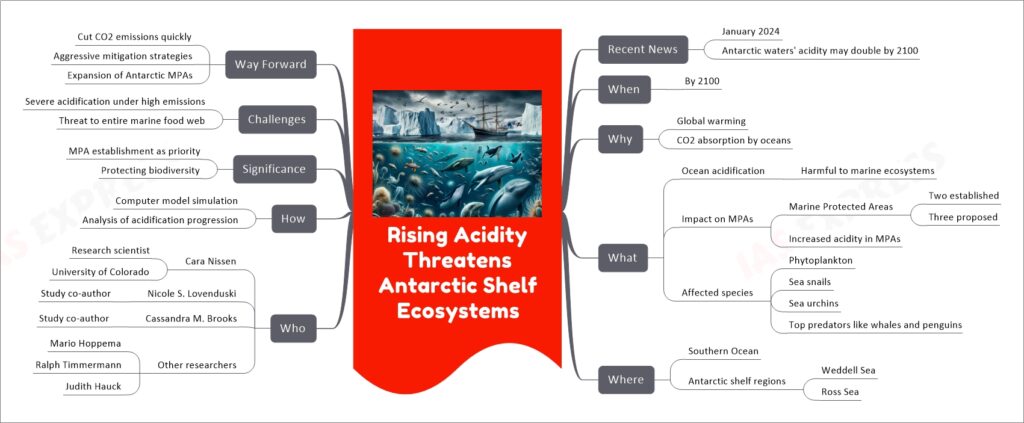Rising Acidity Threatens Antarctic Shelf Ecosystems

The recent research in January 2024 highlights the threat of rising acidity in the Antarctic shelf ecosystems, with the potential of ocean waters’ acidity doubling by 2100. This is mainly due to global warming and the absorption of CO2 by the oceans. The research focuses on the impact of this acidification on Marine Protected Areas (MPAs) and its harmful effects on marine ecosystems. Key species like phytoplankton, sea snails, sea urchins, and top predators like whales and penguins are at risk.
The research, led by Cara Nissen and involving other scientists, used computer models to simulate and analyze the progression of acidification. The findings underscore the need for establishing MPAs as a priority to protect biodiversity. However, there are significant challenges, as severe acidification is projected under high emission scenarios, threatening the entire marine food web. The way forward suggested by the research includes cutting CO2 emissions quickly and adopting aggressive mitigation strategies, along with the expansion of Antarctic MPAs.
If you like this post, please share your feedback in the comments section below so that we will upload more posts like this.

